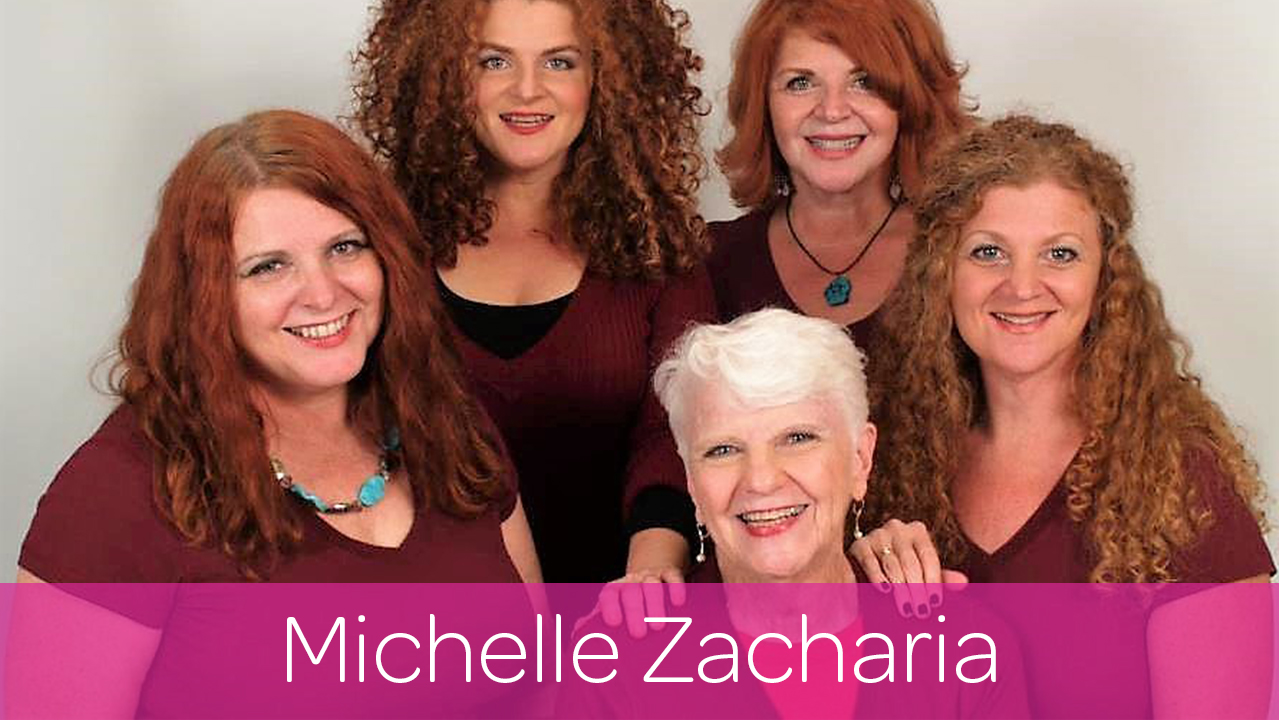Waiting for her flight at the airport, Michelle Zacharia found herself walking in a direction she did not intend: toward the wall of magazines. Michelle, a person totally disinterested in celebrity gossip and tabloid fluff, thought to herself, “Why am I walking over to this magazine rack? I don’t care about Taylor Swift.” She saw nothing of interest over there; yet apparently, as Michelle contends, fate and her mom had a plan for her that day.

Her mother–a “fighting Amazon of a thing” Michelle affirms–had recently lost her battle to ovarian cancer, and yet seemed totally present to Michelle as she picked up the December 2014 issue of Discover Magazine. Under “New Research” the cover read, “High-Risk Cancer Gene: Who Has It?” Although she herself had not healed from the wounds cancer inflicted on her and her family, and did not know if she could bear taking an even closer look at this disease, Michelle found courage and began to read. She says that she will never forget the moment she read in Discover that the KRAS-variant is linked to 25% of ovarian cancer cases, “I have three sisters. Do the math!” As Michelle read on and learned more about Dr. Joanne Weidhaas, the KRAS-variant, and its available genetic test, she became dumbfounded. “This totally changed my life,” she says.
The horror of watching ovarian cancer submit her mother to “the most inhuman suffering” compelled Michelle to share this finding with her three sisters. She pleaded with them, “We have to get tested. You saw how mom died.” Although medical advancements, particularly in the past decade, have mollified ovarian cancer’s reputation for being a “silent killer,” its symptoms are still deceptively normal–bloating, pelvic or abdominal pain, trouble eating or feeling full quickly, and urinary symptoms such as urgency or frequency. Michelle’s testimony speaks an ugly truth known by those who have encountered this disease, “[It] is so undetectable, so savage… By the time you have symptoms, you can either be a stage III or IV.” Before her diagnosis, Michelle’s mom thought her weight gain, bloating, and nauseousness meant she had the stomach flu. The idea that a gene could help demystify this disease and predict which individuals are more susceptible to it astonished Michelle.
As she sought more information regarding genetic testing for the KRAS-variant, Michelle reached out to the contact provided by the Discover article. Anticipating a MiraDx or MiraKind representative to reply to her questions, she recalls in disbelief, “Guess who is writing me back… the scientist herself!” During a time of acute despair, Michelle found much-needed warmth and humor in Dr. Weidhaas’ emails, eventually entrusting herself to her new friend and getting tested for the KRAS-variant. Though grateful for Dr. Weidhaas and her remarkable discovery, Michelle admits she was apprehensive about receiving her results: “I didn’t want to know.” The weeks leading up to it may have been torment, but the day Michelle learned she was negative for the KRAS-variant was, as she says, “supreme joy.”
I imagine the same joy surrounded Michelle when she and her mother were together. Michelle says her mother “had so much moxy, was so fit and gorgeous. I’m sure she got tired of all the compliments she got.” Still, it is clear that her mother’s ability to share beauty with others will not be forgotten; Michelle certainly has inherited this trait.

As a gift of gratitude for her kindness and dedication to her patients, Michelle mailed Dr. Weidhaas an original piece of artwork, now displayed in Joanne’s home. When she made the piece, Michelle says “I was trying to make something out of nothing”–that is, the feeling of nothing after her mom’s passing. Still, this piece is not just a representation of grief, but one of Michelle’s full-circle journey back the beginning of her relationship with Joanne, when a different something came of nothing.
Guided to an area where nothing was of interest to her, Michelle came away from that airport magazine rack with a tangible and inspiring something: the knowledge that new scientific discoveries like the KRAS-variant and physician-researchers like Dr. Weidhaas mean fewer people are suffering from, and will suffer from, cancer in the future.



Leave a Reply